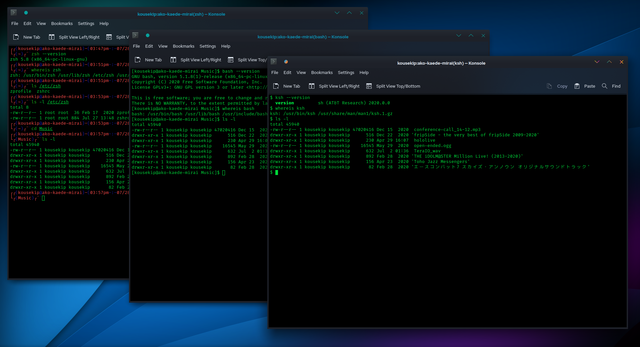2023-09-29T10:37
Dash: The Speedy and Efficient Minimalistic Shell

In the realm of Unix-like operating systems, where efficiency and speed are paramount, Dash emerges as a stalwart contender. This minimalistic shell, renowned for its remarkable performance, has garnered a devoted following among system administrators and developers alike. In this article, we delve into the world of Dash, exploring its key features, its role as the default system shell in certain Unix distributions, and why it continues to hold its ground as a preferred choice for those seeking a lean and swift command-line interface.<br><br>Dash, a Unix shell originally authored by Herbert Xu, is designed with a singular focus on efficiency. Its minimalist approach to features and functionality makes it a lightweight and swift shell, perfectly suited for a wide range of tasks. With an emphasis on speed, Dash stands out as a crucial tool in environments where every millisecond counts.<br><br>One notable aspect of Dash is its exceptional startup time. When compared to more feature-rich shells like Bash, Dash shines by launching almost instantly. This swiftness is particularly advantageous in scenarios where scripts or commands need to be executed rapidly, as it minimizes any delay in command execution.<br><br>The minimalist design philosophy of Dash extends to its feature set. Unlike some of its counterparts that offer an extensive array of built-in commands and features, Dash adheres to a lean and essential set of functionalities. While this may seem limiting to some, it aligns perfectly with the Unix philosophy of "doing one thing and doing it well." Dash's simplicity makes it a versatile choice for scripting, allowing developers to build upon its core functions as needed.<br><br>One of the most intriguing aspects of Dash is its role as the default system shell in certain Unix distributions. For example, Debian, a popular Linux distribution, uses Dash as its /bin/sh interpreter, emphasizing its efficiency and reliability. This choice highlights the trust placed in Dash by seasoned system administrators who prioritize system stability and performance.<br><br>One might wonder why Dash is favored over other shells, given its minimalist nature. The answer lies in its predictability and adherence to POSIX (Portable Operating System Interface) standards. Dash's strict compliance with these standards ensures that scripts written for it are highly portable and less likely to encounter compatibility issues when executed on different Unix-like systems. This reliability is a critical factor in its continued use as a system shell.<br><br>While Dash may not boast an expansive set of built-in features, it provides a solid foundation upon which users can build custom solutions. Its speed and simplicity are particularly advantageous for system administrators who rely on automation scripts to manage servers and perform routine tasks. Dash's performance ensures that these scripts execute swiftly, minimizing downtime and operational overhead.<br><br>In the realm of software development, Dash's efficiency is equally valued. Developers often use Dash for scripting and as the interpreter for various build and deployment processes. Its speed significantly reduces the time required for these operations, contributing to shorter development cycles and faster software delivery.<br><br>Another key advantage of Dash is its low memory footprint. In environments where system resources are limited, such as embedded systems or resource-constrained servers, Dash's efficiency in memory usage is a significant benefit. It allows these systems to allocate more resources to essential processes, improving overall system performance.<br><br>Dash's commitment to efficiency extends to its scripting capabilities. While it may not offer the extensive libraries and features found in languages like Python or Ruby, it excels in executing simple, repetitive tasks. This makes it an ideal choice for creating scripts that automate routine operations, such as file management, log parsing, and system monitoring.<br><br>For developers and system administrators seeking a lightweight and nimble shell that prioritizes speed and adherence to industry standards, Dash remains a compelling choice. Its minimalistic design philosophy, remarkable startup time, and compatibility with POSIX standards make it a reliable and efficient tool for a diverse range of tasks.<br><br>In conclusion, Dash stands as a testament to the enduring value of simplicity and efficiency in the world of Unix-like operating systems. Its role as the default system shell in select distributions, coupled with its loyal user base, underscores its enduring relevance. As the demand for speed and reliability in system administration and software development continues to grow, Dash remains a steadfast companion for those who appreciate the beauty of minimalism in their command-line interfaces.



